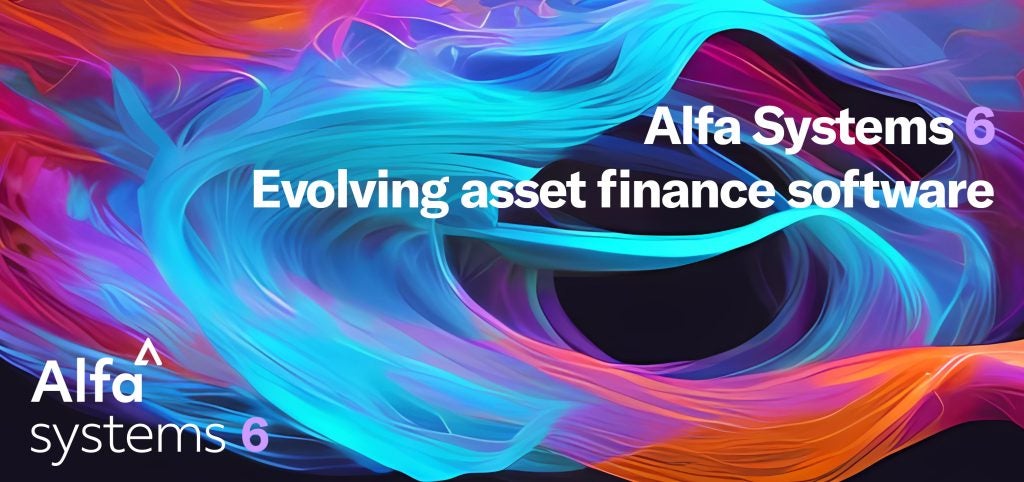
Climate change is the new game in town and leasing has its share of asset finance providers well on the road to a ‘circular economy’ way of thinking.
One young company with low-carbon transition in its DNA, concerned that we’re not doing enough to address global warming and prepared to make a difference, is UK-based Capitas Finance.
Founded in 2006, Capitas is an independent provider of specialist energy project financing for carbon-conscious businesses and public sector organisations. The business employs 12 people in its Surrey, UK, headquarters and was a Sustainability finalist at the Leasing Life Awards 2019.
Alejandro Gonzalez, editor of Leasing Life, asked Darren Riva, the company’s chief executive, to offer a view on how climate change is affecting the sector and to explain the company’s business model.
-O-
Q: Investor climate change focus has shifted its attention away from the extraction sectors of oil, gas and mining to the banks that enable fossil fuel producers to fund their operations. Is this focus likely to shift to other areas of corporate finance?
How well do you really know your competitors?
Access the most comprehensive Company Profiles on the market, powered by GlobalData. Save hours of research. Gain competitive edge.

Thank you!
Your download email will arrive shortly
Not ready to buy yet? Download a free sample
We are confident about the unique quality of our Company Profiles. However, we want you to make the most beneficial decision for your business, so we offer a free sample that you can download by submitting the below form
By GlobalDataA: Yes, this focus is likely to shift to all areas of corporate finance. As ESG [environmental, social and governance] becomes a core pillar in business’ strategies, and their customers and shareholders demand even greater transparency and corporate responsibility, all finance providers will have to evaluate which sectors they support and which they decide to move away from.
Q: Are there any areas of corporate finance that may find themselves exempt from this pressure?
A: No. As more and more pressure is placed on corporate entities to report and reduce their carbon footprint so too this will impact their supply chains and hence those investing in them.
Q: Leasing, in many ways, considers itself very much on-trend with its ‘circular economy’ way of thinking about the use of capital goods, underpinned by a philosophy of not having to ‘own’ equipment, or fleets of cars, but simply satisfied with having stewardship of goods or property at one point of its lifecycle. Is the world of finance leasing immune from these pressures?
A: No. Large enterprise customers are increasingly requesting pay-for-performance financing solutions that allows them to implement energy generation projects with zero upfront capital expenditure.
Capitas has developed commercial documentation to deliver Energy-as-a-Service. These contracts include an Energy Services Agreement (ESA), Energy Performance Contract (EPC) and Power Purchase Agreement (PPA).
For example, the Capitas PPA pays for all project development and construction costs. Leasing assets which cannot be re-used or re-cycled is not creating a circular economy, hence lessors may need to build these criteria into their credit policies if they are to truly show they are enablers of the circular economy.
Q: Mark Carney, the outgoing Bank of England governor, has warned that companies and investors must do more to plan for climate change, arguing many corporate assets are at risk of becoming worthless. Are enough companies stepping-up their planning?
A: Mark Carney is correct. He warned: “If we were to burn all those oil and gases, there’s no way we would meet carbon budgets. Up to 80% of coal assets will be stranded, [and] up to half of developed oil reserves. A question for every company, every financial institution, every asset manager, pension fund or insurer: what’s your plan?”
At Capitas we see evidence that companies are taking this matter seriously as we hear more and more about businesses aiming for ‘net zero’, ‘carbon neutral’ and now ‘carbon negative’ targets. The key will be to ensure that these terms don’t just become marketing terms, but are embedded and reported on within the ESG framework.
Q: You describe yourselves as providers of specialist energy project financing for businesses concerned about their carbon footprint. What prompted this move?
A: We spotted a niche when the energy sector was underserved and we are ahead of the game. We spent time researching the macro and micro-environmental factors, developing solutions that both end-user customers and energy services companies (ESCOs) find valuable.
Customers are not used to being offered the right solutions to acquire different types of energy technologies. It is a basic barrier but definitely exists. We don’t expect ESCOs and customers to talk our language, instead, we give them an integral solution to their problem – which, in practice, means we offer more than finance. Our team is comprised of energy sector specialists who understand the technologies (and the challenges faced by customers) – we’re more than just a source of capital. We add value in a broader way to the project and the stakeholders involved – and we use our contacts and sector experience to bring the right skills, knowledge and solutions to the table.
Q: What are the challenges of this as a business model?
A: Energy project finance is not like traditional asset finance, because the assets are different to cars, planes etc., the technologies are evolving, more variable and projects often include a large number of professional services.
Therefore, in general terms, the challenges of financing energy projects are presenting these types of proposals to credit and risk teams. We use a multi-skilled team on energy projects that covers technical, commercial and finance thinking. This mitigates risk, addressing all three disciplines needed to do a deal. That includes the legal and accounting aspects of the transaction.
Other challenges include managing the supply chain and their commercial terms together with the possibilities of performance risk, which we do not wish to take. Consequently, supplier due diligence is paramount and equipment must come from tier 1 manufacturers with robust guarantees and warranties, with the supplier able to maintain the equipment. Knowledge of the technologies and the ability to integrate all parties’ skill sets to get a project over the line.
In the broader market, the key to success is working proactively with the right partners to solve customer problems. Because that is what this is all about, providing solutions to clients.
It is incumbent on us to work with our services and technology partners to provide a solution for a customer – and that has to be sufficiently simple and good value for money.
Q: I understand that Capitas does not have a banking license. How do you fund the projects you are involved in? Could you unpackage your business model for our readers?
A: We operate two distinct businesses:
We are an ‘origination’ energy solutions business accessing debt finance from finance companies, typically asset finance companies often wholly-owned subsidiaries of banks. Our financial solutions encompass leasing, hire purchase, energy services agreements, and energy performance contracts.
Capitas Energy Finance is an ‘operator’ of generation assets for companies, using debt finance to fund power purchase agreements (PPA).
We aim to develop partnerships with energy services companies to deliver sustainable, value-for-money solutions to end-user customers. The Capitas philosophy is that you need technical skills to understand the technologies and commercial skills to be able to price and structure the investment. It’s rare and difficult to integrate these distinct disciplines. Capitas integrates technical, commercial and financial thinking so that when the multi-disciplinary team is engaged on a project, it can provide specialist advice as well as the finance to execute.
Q: Project financing is often associated with limited recourse (or non-recourse) arrangements with banks, meaning the lender does not expect repayment from the borrower but looks to the project itself to generate an income. Is this what you mean by pay-for-performance financing solutions, or is there a difference?
A: Pay-for-performance financing solutions are based on a shared savings model with a guaranteed performance contract e.g. an energy services agreement, or alternatively an energy performance contract. These can be ‘pay per use’ but will have a minimum usage clause based on a pre-project energy audit.
A power purchase agreement can be classed similarly with the end-user paying a reduced price per Kw energy instead of a shared savings model. Capitas Energy Finance (CEF) agrees electricity rates with customers using its own PPA. The PPA is a contract between CEF, which generates electricity (the seller) and the customer who wishes to purchase electricity (the buyer).
The PPA defines all of the commercial terms for the sale of electricity between the two parties, including when the project will begin, commercial operation, schedule for delivery of electricity, penalties for under delivery, payment terms, and termination. The PPA is the principal agreement that defines the revenue and credit quality of a generating project and is thus a key instrument of CEF project finance.
Q: How big (and small) in financing terms are the projects you support?
A: Capitas targets suppliers with strong end-user customers requiring project finance with a small “p” using asset finance, managed services and asset management disciplines. Transaction sizes typically range from £50k to £5M, however there can often be multiple projects for each entity.
Q: Do you operate only in the UK?
A: Capitas resources for sales are focused on the UK but our supplier partners and customers can take us overseas; Capitas is currently working on live transactions in Mexico, Malaysia and Norway for existing large enterprise customers.
Q: Could you outline the leasing finance arrangements for one of your recent projects?
A: An energy services company (ESCO) partner of ours recently delivered a gas plant closed-loop production system proposal.
Closed-loop production systems strive for sustainability by improving economic and environmental goals simultaneously. We note that many negative environmental impacts, such as waste, energy consumption, transport processes and packaging, can be avoided if companies establish closed-loop production systems.
This is the concept of sustainable supply chain networks (SSCN) as a suitable means of designing closed-loop production systems. The implementation of SSCN allows the process links between the companies in a supply chain to close, which facilitates the transformation from a flow economy into a circular economy.
A circular economy improves sustainability and ultimately leads to improvements in economic and environmental performance. The factory in question could still grow to an additional 30 per cent from its current capacity.
Return on Investment (ROI) from the gas plant could be as quick as two years. Separately, this is part of Factory of the Future’ (F4F), the realisation that production plants need to make a quantum jump in performance to maintain their competitiveness.
The ESCO is using an energy services agreement (ESA) developed by us. The ESA is a partnership between our landing and braking systems customer and the ESCO. The ESCO has conducted a comprehensive energy audit for the customer facility and identified improvements to save energy.
In consultation with the customer, the ESCO has designed and constructed a project that meets the customer’s needs and arranged the necessary financing through us. The ESCO guarantees that the improvements will generate energy cost savings sufficient to pay for the project over the term of the contract.
After the contract ends, all additional cost savings accrue to the agency. The savings are guaranteed and the customer is contracted for a period of seven years.
Q: The French bank, BNP Paribas, says it is committed to fighting climate change. In 2017, the bank said that it would no longer do business with companies whose activities primarily involve oil and gas extracted from shale deposits or tar sands. Do you have any dealings with them?
A: Yes, Capitas has a funding line with BNP Paribas Leasing Solutions.
Q: Recently the chief executive of Blackrock published a letter directed at CEOs saying it will take into account company policies on climate change when Blackrock decides where to invest its money. It seems we’re seeing the concept of ‘value’ changing from a narrow perspective, focused solely on ‘shareholders’, to a broader definition focused on ‘stakeholder value’. How is this move likely to affect the corporate financing world?
A: Corporate responsibility and governance is becoming ever more challenged by both customers and shareholders, corporate financing cannot shy away from this. Corporate finance has a pivotal role to play in the future investments of UK businesses.
As the UK population, politicians and investors take more control over the climate change debate and the swift transition to a truly low-carbon economy. So, corporate finance will have to evolve to support the mood of the country. I believe this is already happening and it will continue to gather pace as we look to show the ‘value’ we provide to both business and the communities we serve.
Q: Do ESG (environmental, social and governance) metrics offer a way forward for companies involved in providing asset finance and corporate leasing?
A: As with all companies, corporate finance and leasing companies should have ESG thinking at the heart of their investment process. Suitable metrics will help lenders assess the risks, and opportunities, posed by companies’ performance in the area of climate change. Company disclosure and standards of reporting on this issue are crucial for driving accurate investor information, public discourse, regulatory guidance etc.
We also believe that transparency is critical to driving positive outcomes at both a financial and social level. So ESG risks are just as important as financial risks. Heightened social, governmental and consumer attention on the broader impact of companies, as well as by the investors and executives, means that getting an ESG proposition right links to value creation and can safeguard a company’s long-term future.







